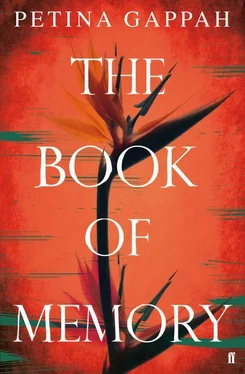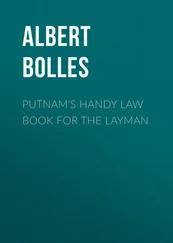My mother did not leave the house after Mobhi died. She lay on her bed in her room and came out only when my father helped her to the bathroom. A few days later, I began to have strange dreams. I began to dream of the creature that hugged me to itself and almost choked me with the smell of camphor cream.
Now that I have written that sentence, it strikes me as strange that I should have begun to dream about a creature that I had never seen, because it was only at Lloyd’s house, and not before, that I first saw the Chimera, but so it seems to me now.
It was then that my dreams started. In them the creature trailed water; it had dirty feet and surrounding it was the cloying smell of camphor. In another dream, the creature came and picked me up; its dirt had spread from its feet to its body, and I was covered in it. I opened my mouth to scream and my mother appeared to fight for me. She looked terrible in her nightgown; her hair stood up in spikes as though it had been stretched. For a moment I thought that she was the Chimera. Then she fought the creature and took me from it. ‘You are dirty, Memo,’ she said. ‘Come, you need a bath.’
She picked me up, but the creature struggled with my mother and took me back from her and in my father’s voice, it said, ‘Not again. Not this again. She is clean, she is clean, Moira, let’s go to sleep.’ Then I thought that the Chimera would swallow me but all that happened is that I fell into a deep sleep interrupted by sounds of weeping, long harsh sobs that made it seem as though the whole night, the whole house, and the whole world beyond it was also weeping.

In the days after Mobhi died, I sometimes woke up in the night to hear my mother struggle. My father sank into himself. He spent most of the time cooking for us, feeding us and watching us play with each other. He sometimes stopped work and would sit for minutes staring into the middle distance. We had to call out to him more than once to make him hear us. He became much more affectionate in physical ways than he had been before. He had always been an easy man to touch, but now he seemed always to be lifting us up or holding us to himself.
He ate very little. I was a reasonably good cook by then; all girls who are raised in the townships and villages can cook something by age seven. Of course, it helps that most of the food I cooked was boiled, nothing too complicated. I decided to boil him an egg, and to make him some fried bread. I fried the bread, and put it together with the peeled boiled eggs on a plate. I made him tea, with powdered milk. The tea had floating lumps. I carefully walked to where he was. He was staring out of the window. ‘Baba,’ I said. ‘Look, I made you some food.’
He looked at me as though he did not remember who he was. Then he looked down at the food that I had made. He put his arms around me and wept hard as he held me. When he let me go, he said, ‘It is just what I needed.’ But when I came back later to collect the dishes, I found that he had not touched the food at all, but had fallen asleep. I thought I would give my mother the food, but she too was asleep, the rope still around her hands.
The morning after one of my dreams, I had gone into my mother’s bedroom with a plate of bread and jam. The room was in darkness. My mother lay in her nightdress on top of the bed. Her hands were tied behind her.
My father sat with his head in his hands, on the floor, in a dark shadow cast by the bed. ‘This is so that she does not harm herself,’ he said when I entered the room.
It was still the holidays when Mobhi died, so Joyi and I did not have the distraction of school. In our room, there was no Mobhi to sleep between Joyi and me, no Mobhi to wet the bed.
About two weeks after Mobhi died, my father said he was going to town. He left us in the house of MaiNever. We were not to disturb my mother, he said. This was easily done: MaiNever had a television, and we sat dazzled before it, watching cartoons. MaiNever gave us rice and chicken, which we ate while trying to keep our eyes on the TV.
Then she put before us a bowl of peaches, and seeing them, I looked up into her face. She had tears in her eyes. Joyi took the peaches, but I said ndaguta , and fixed my eyes on Voltron forming arms and legs. I did not eat those peaches. I have not eaten a peach since.
*
After we got back to school the term after Mobhi’s death, I got into a fight with Nhau during break.
Nhau had told Joyi that, if witches didn’t eat her flesh first, Mobhi would soon turn into worms. Joyi cried. When she told me what Nhau had said, I went after him with no further thought than that I would make him pay. I was still angered that he had taken the peaches for which I had received the blame, and so I lunged for him. Around us the children started to shout, fight, fight, fight. Nhau hit me a hard blow to my chest that left me winded.
I rushed at him as though to push him, but he stepped aside. I fell down hard. When I got up, I ran straight at him and knocked him down. He was afraid to hit me, afraid of seeing the blood under my skin. I felt a savage satisfaction as I hit and hit, and stopped only when Mistress Nyathi lifted my hands from his bruised face.
Mistress Nyathi asked what had happened, and I would not say, and neither would Nhau. She punished me by making me sit outside for the rest of the day. I refused to go to school the next day, and my father said he was going to ask me to stay at home that day anyway, because he wanted to take me to town with him. I was to dress up in my Christmas dress, he said, my favourite dress: white, with a purple sash.
This was simply too wonderful to be real. The idea of going to town with my father soon eclipsed the pain of seeing Nhau again. My mother insisted on coming with us. She was better, she said; she wanted to do some window-shopping. This was the first time that my mother had been out of the house. She looked very thin; she wore a blue costume with a pink blouse that had a bow tie at the neck. We walked Joyi to school, then took the Zupco to town. My father sat in the middle, while I looked out of the window.
I have vivid memories of that wonderful morning. It was as though my father could refuse me nothing. We walked up and down First Street, looking at the windows. I had two ice creams. I had candyfloss that my father bought from a Coloured man on First Street. I was still hungry when my father said, ‘Now we need something to eat.’ I kept stealing glances at my mother, but she was too taken with everything around her. She looked happy, and she laughed with my father. We went inside Barbours department store, something we had never done before. It seemed like some sort of treasure chest of glittering bottles and sweet-smelling women. A white woman in strange-looking glasses who stood behind the chocolate counter gave me a dollar. I looked like an angel, she said, just like an angel.
On the third floor, we stopped at the toyshop. I asked my father to buy me a doll — a real doll, like Princess’s but much nicer. He looked at his watch and said he was hungry and why didn’t we eat something now. We went to the tearoom behind the toyshop. I felt as if every eye was on us because the place was filled with lots of white people.
We sat in a booth, my parents and I all on one side from my mother. As we ate our chips and chicken, Lloyd came to our table. He called my father Benson, and talked to him with a familiarity that suggested they had met before. My father introduced my mother to Lloyd. She nodded and said nothing.
I was struck by the wonder of a white person talking to my parents so familiarly. I had never talked to a white person before: I had only heard Reverend Bergen speak to us, but never talked to him. It filled me with wonder that my father could be talking with this man; at eye level they were the same height. I was so lost in the wonder of it that I did not immediately realise that the man had stopped talking and was looking expectantly at me. ‘What is your name?’ he said.
Читать дальше













